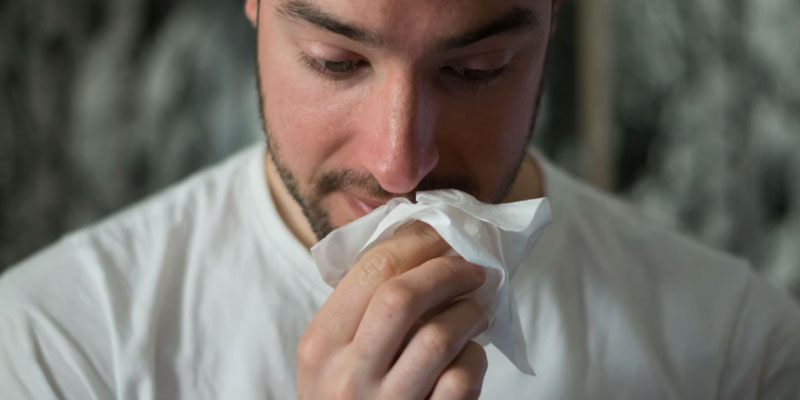
What makes this something other than “just a cold”?
The headline that the Providence Journal gave to Mark Patinkin’s latest column puts things in a useful context: “It’s just a cold, right? I thought a booster made me invulnerable — but I got COVID.” If we step back a pace and look at things objectively, we might indeed wonder what makes COVID something other than or, more relevantly, something more ominous than “just a cold.”
Amidst personal details about family members and descriptions of his journey to a positive test result, Patinkin provides the answer:
I wasn’t careful enough when I first felt a “cold” come on. There’s a reflex to tell yourself it’s just that, a cold. So I didn’t quarantine away from my son, as well as a close college pal of my daughter who has been staying with us in our home.
Thankfully, both of them avoided the virus, with repeated PCR tests negative. But it still meant they had to miss work for ten days because they were exposed. The state only asks that such folks test; but their jobs asked that they quarantine. …
For 18 months, I told myself that risking COVID is mostly my own peril. I’m now far more clear at how disruptive we can be to others — even if they don’t get it.
What makes COVID more ominous than “just a cold” — or “just the flu,” in acknowledgment that it can produce worse outcomes than head colds — is the wall of rules and restrictions that authorities are imposing, whether governments or employers. It’s not the virus causing the problem, now; it’s us. Patinkin goes on to describe how he directed the icy glare of the state (in the person of the “caring, professional” Nick) toward everybody with whom he had interacted. No doubt their phones soon rang with horror-movie music in the background.
As a parent, I’ve been watching the dread of restrictions transfer to ordinary illnesses. Schools seem willing to let children get away with the sniffles, but if the congestion creates a cough (which congestion tends to do), then that’s two symptoms, which requires a test. Meanwhile, the state is taking up to four days to return the results that count as a get-out-of-jail ticket. For kids, in other words, “just a cold” means the better part of a week out of school. It’s no longer only COVID that can disrupt others’ lives.
As a society, we’ve reached the point of having to ask ourselves whether this is where we want to go. Are we going to be so nosophobic that we accept a standard of zero preventable spread of any disease, no matter how mild?
The alternative to allowing fear of COVID to infect our reaction to more-familiar illnesses is to go in the other direction and finally expand our perspective on colds and flus to cover “the novel coronavirus.” That is, we can acknowledge that it’s simply part of the human experience and go about our lives — not taking unnecessary risks, but not imposing the unnecessary side effects of excessive caution.
Sure, for a professional columnist, fear of COVID may only mean giving up theater tickets, but the consequences are much more dire for most people, especially children, who (let’s not forget) have proven mostly immune to bad COVID anyway. Perhaps our more-senior citizens will be beyond caring when our country has to learn the lesson of fear’s effects, but if we’re wise, we’ll account for them, now, in our cultural responses.
Featured image by Brittany Colette on Unsplash.

